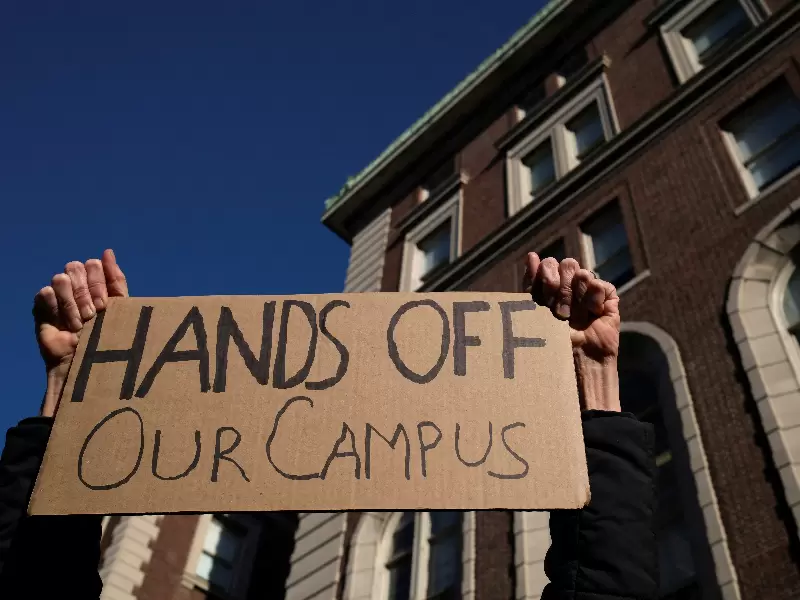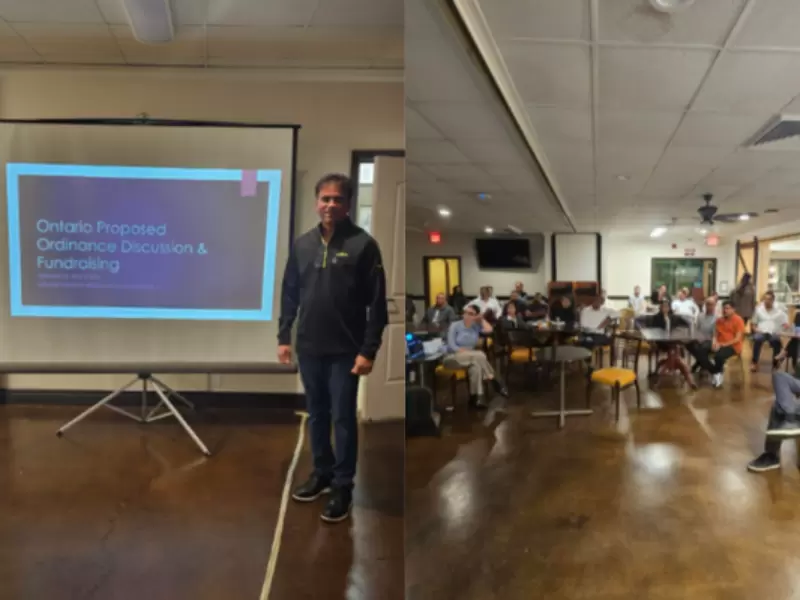Rutgers University Part 5: The Ecosystem of Defamation
Part 5(B): Caste as a Manufactured Crisis: Equality Labs and Political Enablers.
 Representative Image. / iStock photo
Representative Image. / iStock photo
Introduction: A Narrative Built on Sand
The issue of caste did not organically emerge in North America as a pressing social concern. Rather, it was fabricated, inflated, and weaponized by ideological actors and activist organizations. At the center of this narrative is Equality Labs (EL), a U.S.-based group led by Thenmozhi Soundararajan (TS). EL’s 2018 caste survey, frequently cited but methodologically flawed, continues to shape legislation, corporate DEI policies, and university programs, all disproportionately targeting the American Hindu community.
The Rutgers Report falsely claims that caste is an inextricable component of Hinduism, transferred to the U.S. via diaspora communities, especially those aligned with Hindutva thought. In Section E and elsewhere, the report frames caste as central to Hindu identity, asserting that attempts to dissociate caste from Hinduism amount to erasure or complicity. TS enjoys considerable support, including from individuals tied to the report.
This section (5B) explores how EL, aided by sympathetic academics and political allies, manufactured a false moral panic surrounding caste, placing the American Hindu community in the crosshairs. The author previously analyzed this issue in a series on “Caste-Jihad,” published on PGurus (part 15, including reference to other articles) between December 2021 and March 2022, during a period when EL aggressively promoted caste narratives in U.S. academia.
Though EL claims caste is a “South Asian” issue, its focus overwhelmingly targets Hindus through selective representation and anecdotal data. Its internal contradictions betray this inconsistency. The Equality Labs itself has many inequalities reflected in its mission.
What the author did not anticipate was EL's likely role—direct or indirect—as a contributor to the Rutgers Report, ominously titled An Ethnonationalist Threat to Equality and Religious Pluralism. The inclusion of the word “equality” signals ideological alignment with Equality Labs, whose agenda undermines pluralism, promotes Hinduphobia, and delegitimizes Hindu identity under the guise of civil rights.
Rutgers Report: A Pseudo-Scholarly Smear
One suspected contributor to the report is Audrey Truschke, a historian and Director of Asian Studies at Rutgers, who omits the complex and evolving history of caste in Bharat (India). As a historian, she should acknowledge figures like Sant Kabir, Chokhamela, Swami Vivekananda, and Dr. B.R. Ambedkar—many of whom critiqued caste while engaging constructively with Hindu philosophy.
In the diaspora, Hinduism is largely non-casteist in practice. Second- and third-generation Hindu Americans connect with their faith through rituals, festivals, spiritual practices, yoga, and ethical teachings—not caste. The reality is that caste holds little relevance in everyday life, let alone as a basis for discrimination. To essentialize caste as “Hindu” is not only academically dishonest; it reduces a pluralistic, dynamic tradition to its most maligned aspect, weaponizing history for contemporary political goals.
The report also ignores the fact that the rigid, racialized concept of caste was a colonial imposition. The term "caste" comes from the Portuguese casta, and the British—especially through Herbert Risley’s 1901 census—cemented caste into rigid hierarchies. Today’s caste fixation by activist networks echoes that colonial lens, seeking not to liberate but to colonize the Hindu mind.
Blaming Hinduism for caste is akin to blaming Islam for tribalism or Christianity for feudalism—historically inaccurate and politically expedient.
EL Survey: Sparking a Crusade and Invading Academia
Equality Labs’ 2018 report, Caste in the United States, was neither peer-reviewed nor methodologically sound. Its self-selected, unverified data lacks statistical reliability. Yet, it is widely cited in support of legislative efforts such as California’s SB-403, DEI trainings in CSU and UC systems, and corporate diversity workshops that single out Hindu employees.
What EL advances is not social justice but civilizational defamation, masquerading as inclusion. Its claims, mirrored by the Rutgers Report, constitute academic negligence, if not outright fraud.
Recent developments in caste issues, however, offer hope:
- In 2023, the Cisco caste-discrimination case was dismissed by the Santa Clara County Superior Court for lack of evidence.
- California Governor Gavin Newsom vetoed SB-403, citing legal and constitutional concerns.
These outcomes resulted from sustained advocacy by Hindu organizations such as HAF, CoHNA, and, more recently, Caste Files. These victories highlight the resilience and organization of the Hindu American community. More will be needed to counter the falsehoods promoted by the Rutgers Report.
Yet EL presses on. In April 2025, EL hosted an event at UC Irvine, where Dalit and Bahujan Hindu activists were denied a platform. This ideological censorship—silencing dissenting even from within—is profoundly dishonest and dangerous. It reveals the organization’s gatekeeping and intolerance, even toward those it claims to represent.
Political Enablers of Institutional Hinduphobia
Equality Labs’ rise did not occur in a vacuum. Its influence is amplified by political and academic actors with a history of anti-Hindu bias. Two political figures stand out:
- Rep. Ilhan Omar of Minnesota has refused to condemn Hinduphobia, consistently criticizes India and Hindu organizations, and supports caste-related legislation.
- California State Senator Aisha Wahab, of Afghan origin, led the now-defeated SB-403 effort. The Rutgers Report features a photo of Governor Newsom—perhaps to shame him for vetoing the bill, a decision that ironically upheld constitutional fairness.
In New York, Zohran Mamdani, a self-styled socialist and mayoral aspirant, has accused Prime Minister Modi of war crimes and frequently maligns Hindu identity to appeal to niche electoral bases. His radical positions and overt anti-Hindu rhetoric are troubling. It’s conceivable that his narrative draws inspiration, if not coordination, from those behind the Rutgers Report.
These political actors offer institutional legitimacy and legal scaffolding to a movement aimed at eroding Hindu identity under the guise of caste justice. Their selective outrage and silence on other global injustices betray motives rooted more in political expediency than genuine human rights concerns.
Conclusion: Shattering the Caste Mirage
Equality Labs, along with its ideological allies in academia and politics, has constructed a narrative of caste persecution in America based on flawed data, ideological bias, and cultural distortion. The Rutgers Report serves as a capstone to this campaign, portraying Hindus and Hinduism as inherently oppressive.
This must be confronted—not with silence, but with clarity, courage, and collective resolve. Hindu Americans are fighting not just for legal justice, but for the survival of their cultural and civilizational identity.
The final part of this series will focus on Operation Sindoor, a strategic initiative for dismantling the Rutgers nexus and reclaiming the narrative with precision and dignity.
The road ahead is steep, but with strategy and unity, Hindus can and must prevail.
NOTE: The author acknowledges the use of ChatGPT in researching topics and the meaningful improvement of content.
(The views and opinions expressed in this article are those of the author and do not necessarily reflect the official policy or position of New India Abroad)
ADVERTISEMENT
ADVERTISEMENT
E Paper
Video




 Vijendra Agarwal
Vijendra Agarwal













Comments
Start the conversation
Become a member of New India Abroad to start commenting.
Sign Up Now
Already have an account? Login